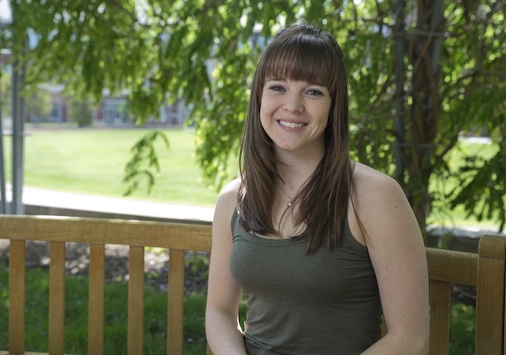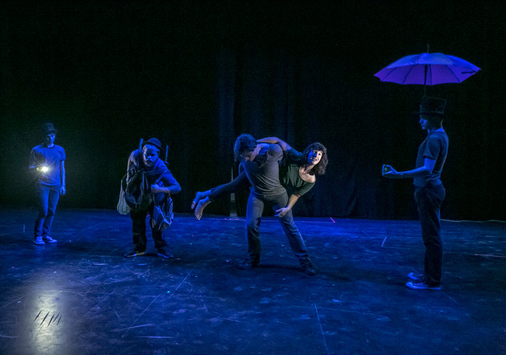Courses
2024 - 2025
For this academic year's course catalog, please visit our Academic Catalog site. For courses currently offered, please refer to the Schedule of Classes.
Students learn about the Spanish-speaking world while they start developing their Spanish linguistic skills in four basic areas (listening, speaking, reading, and writing). Students do a variety of written and oral activities that include formal and informal presentations, skits, short essays, etc. The course is conducted in Spanish.
Students continue learning about the Spanish-speaking world while they solidify their Spanish linguistic skills at the ACTFL novice level in the four basic areas (listening, speaking, reading, and writing). Students do a variety of written and oral activities that include formal and informal presentations, skits, short essays, etc. The course is conducted in Spanish.
Prerequisite(s): SPAN 111 or placement.
Students further their knowledge of the Spanish-speaking world while developing a functional comprehension and use of spoken and written Spanish at the ACTFL novice-high/intermediate-low level. The course solidifies grammar structures and emphasizes the acquisition of cultural knowledge about the Spanish-speaking world through a wide variety of visual and written texts. Conducted in Spanish.
Prerequisite(s): SPAN 112 or placement.
Students will enhance their proficiency in oral and written Spanish, in order to solidify a low-intermediate ACTFL level. Students will develop skills such as summarizing, comparing, contrasting and synthesizing. Students will practice communicational abilities through discussions, oral presentations, debates, reports and film reviews. Audiovisual materials, Internet based resources and cultural readings will be frequently used texts. Conducted in Spanish.
Prerequisite(s): SPAN 211 or placement.
Students develop their writing and analytical skills through an intensive writers’ workshop, which includes linguistic, literary, and cultural analysis through grammar, readings, discussions, and essay. Students develop their writing through expository, argumentative, and analytical essay as well as other genres such as chronicle, journal, autobiography, and literary translation. Students will write, edit, and evaluate their work and that of their peers following models presented through readings organized around thematic units. Conducted in Spanish.
Prerequisite(s): SPAN 213 or placement or permission of instructor or department chair.
Students will enhance their skills in writing and composition through literary analysis, literary translation, and practice of the craft of writing in different genres (drama, poetry, short story) in the Spanish language. Using the close reading of great works of Hispanic literature in the above-mentioned genres, students will learn to translate literary texts and create literature of their own. Students will explore the process of writing, editing, and evaluating their work and that of their peers.
Prerequisite(s): SPAN 215 or consent of instructor or department chair; no course prerequisite if taught in English; when taught in English, no first-year students.
Have you ever heard a Spanish speaker in the United States say escuela alta, rufo, llamar para atrás o queik? Or have you heard someone switch from English to Spanish in the same sentence? What is Spanglish? Do you have a friend who doesn't know Spanish even though his parents speak it? Is Spanish a foreign language in the US? Have you ever heard someone say that we shouldn't speak Spanish here? The United States has a Hispanic population that is larger than most Latin American countries. But, unlike other Spanish-speaking countries, Spanish is a minority language in the US. In this class, we study various social and linguistic phenomena that arise from this situation. Among other topics, we analyze the history of Spanish in the US, the racialization of Spanish, language policy, Spanish in education, Spanglish, and Latinx identity.
Prerequisite(s): SPAN 215 or permission of the instructor.
This course introduces students to the existing world of translation. Students work with written texts, transferring text from a source language into a target language (Spanish-English and English-Spanish). This is far more than replacing one word with another: the translator must also convey the style, tone, and intent of the text. Focus is on the actual process of translation: what the translator does and why. Students will work mostly with literary and journalistic texts. Students will gain an understanding of different cultural communication styles. Students will familiarize themselves with the relationship between language and power, and the role of the translator as the "in-between" agent.
Prerequisite(s): SPAN 215 or consent of instructor or department chair; no course prerequisites if taught in English; when taught in English, no first-year students.
Students will conduct an in-depth analysis of the Spanish grammatical system, which includes core areas of linguistics such as morphology, syntax, semantics, and pragmatics. Students will analyze the Spanish grammatical system in a wide variety of written and oral texts. For example, contrastive analysis will be used as a method of problem-solving. Spanish will be the medium of instruction as well as the content area. Written work and oral presentations in Spanish should be produced at the ACTFL intermediate-high level. Conducted in Spanish.
Prerequisite(s): SPAN 215 or consent of instructor or department chair; no course prerequisite if taught in English; when taught in English, no first-year students.
Students will analyze Spanish Literature from the Middle Ages to the Twentieth Century within its historical, sociocultural and artistic contexts. This course offers an overview of main literary periods, authors and genres. Students will examine a variety of texts and the outstanding characteristics of their authors. Students will engage in critical analysis of texts through research essays, creative projects and oral presentations, at the ACTFL intermediate-high level. Conducted in Spanish.
Prerequisite(s): SPAN 215 or consent of instructor or department chair; no course prerequisites if taught in English; when taught in English, no first-year students.
Was Inquisition an evil machine created by the Spaniards to terrorize the world? Did the Spanish Empire rule over half of the world through fear and punishment? Is Spain a barbaric country? Students will address these and other questions that arose during the 16th and 17th centuries in Europe to analyze the expansion of the Spanish Empire. In this class, we will study different power relationships between Spain and Latin America and, Spain and Europe. Through historical, literary and cultural texts students will analyze the myth known as "The Black Legend" and learn about different social and political structures and discursive strategies that sustain power. Students will also explore how these have been transformed and survive nowadays.
Prerequisite(s): SPAN 215 or consent of instructor or department chair; no course prerequisite if taught in English; when taught in English, no first-year students.
Islamic Spain was a place where ancient and new communities encountered and transformed each other. Known in the Middle Ages as al-Andalus, it continues to occupy the cultural and political imaginations of Spain and the Arab Word. This class explores al-Andalus through what defines it in scholarly and popular discourse: its religious communities and the cultural contact and synthesis characterizing them. By placing medieval Spain or “Iberia” into its Mediterranean context, the class traces the development of Jewish, Christian, and Muslim communities from their beginnings in the eastern Mediterranean and their settlement in Iberia up to the diasporas in the Mediterranean region today. Rather than essentializing religion, we place it in dialogue with language and culture, tradition and innovation. As a writing intensive seminar, students will engage the cultural and historical themes of the class through writing in daily discussion posts, in-class reflections, midterm essays, and a phased-research project on a theme chosen by the student. Closed to first years.
Prerequisite(s): SPAN 215 when taught in Spanish; When taught in English, none.
Students will analyze texts from Pre-Columbian times to the present within their historical, sociocultural and artistic contexts. This course offers an overview of main literary periods, authors and genres. Students will examine a variety of texts and the outstanding characteristics of their authors. Students will engage in critical analysis of texts through research essays, creative projects and oral presentations, at the ACTFL intermediate-high level. Conducted in Spanish. Cross-listed with LACS 325.
Prerequisite(s): SPAN 215 or consent of instructor or department chair; no course prerequisites if taught in English; when taught in English, no first-year students.
Students will analyze how the different people of Spain conceive of and represent themselves, their attitudes, values, and beliefs. Through a multidisciplinary approach, students will explore questions about national and regional identities, religious and ethnic communities, cultural movements and institutions, canon formation, and popular culture. Following a historical perspective, students will examine the evolution of institutions, traditions, and various artistic endeavors. Historical, cultural, and philosophical texts will be the basis of this class. Students will hone the skills of interpreting, relating, categorizing, and critiquing cultural works and periods. Students will write analytical essays, present oral reports, and take exams as part of the course evaluation. Students will achieve an ACTFL intermediate-high level. Conducted in Spanish.
Students will analyze selected historical themes such as revolution, gender and sexual politics, Southern cone dictatorships, human rights, and memory. Students will work with a variety of texts: films, testimonies, performance art, and fine arts. Students will engage in critical analysis of texts through research essays, creative projects and oral presentations, at the ACTFL intermediate-high level. Conducted in Spanish.
Prerequisite(s): SPAN 215 or consent of instructor or department chair; no course prerequisites if taught in English; when taught in English, no first-year students.
Students will engage in an in-depth study of selected topics in the frame of the Atlantic World, which addresses the relations between the cultures of Peninsular Spain and Latin America from a transatlantic perspective. Students will question Western systems of thought, will interrogate structures of power and will develop new connections to the realities of the Hispanic World. Students will summarize, compare and contrast, synthesize and evaluate cultural themes, actors and events. Students will hone their research skills and will demonstrate them through oral presentations, in-depth discussions, creative work, research papers, poster sessions, webspaces, and wikis that meet the ACTFL intermediate-high/advanced-low level standards. Conducted in Spanish.
Prerequisite(s): SPAN 215.
This course offers a place for innovative courses exploring Hispanic cultures and/or linguistics. Description depends on topic and instructor.
Prerequisite(s): SPAN 215.
In this course, we will critically analyze topics such as nation, immigration, race, and class as construed in the Latin American context. We will do it using different cultural productions such as works in the fine arts, cinema, music, dance, cartoons, and literary texts. We will also keep present references to the historical, political, and social background in which those productions have appeared. Students will engage with those productions through a variety of forms: doing research, writing essays, doing oral presentations, making creative works, and engaging in in-depth discussions. They will also compare and contrast, evaluate, summarize, and synthesize as they study and analyze those themes. They will further develop their reading, writing, listening, and conversational skills in Spanish at the intermediate-high/advanced-low level as described by the ACTFL standards. The course is conducted in Spanish. Prerequisite 215 or placement or permission of the instructor. This is a special topics course.
This course explores Latine and Chicanx women's health through feminist theories and methodologies. Key thinkers like Gloria Anzaldúa and Cherríe Moraga guide our critique of the socio-cultural constructions of women's bodies and health, promoting an understanding of bodily autonomy, reproductive rights, and intersectional healthcare. Assignments will involve analyzing Latine/Chicanx cultural texts (literature, art, film, media) through a feminist lens, considering how social and cultural factors shape narratives around women's health. We'll examine the diverse experiences of women, especially focusing on race, class, sexuality, and nationality within Latine/Chicanx communities. The course includes comparative studies of cultural representations and acknowledges the importance of localized, community-specific studies to avoid overgeneralizations. Content is grounded in Latine/Chicanx feminist scholarship, encouraging students to engage critically with readings and case studies from leading feminist scholars and artists. The course is conducted in Spanish. Prerequisite 215 or placement or permission of the instructor. This is a special topics course.
This seminar integrates the two core courses, the six 300-level courses, and the off-campus experience into a culminating research project. It focuses on theoretical tools, frameworks and methodologies in Hispanic Cultural and Linguistic Studies. This seminar emphasizes the development of independent research skills and scholarly writing in connection with a research project based on individual students' interests in cultural artifacts from the Spanish-speaking and Latino worlds. Prerequisite: SPAN 213, SPAN 215 At the 300 level: any six courses (electives)
This course focuses on language and its applications. This means that we will discuss language as it relates to teaching and learning as well as to professional areas such as health, business or tourism. Moreover, we will explore the relationship between language and society. Students in this class will read and write different academic texts ranging from outreach texts to research proposals.
Prerequisite(s): SPAN 315 and one additional 300-level SPAN course or consent of instructor or department chair.
Study and discussion in depth of a selected topic, writer or work from Peninsular literature. Students will summarize, compare and contrast, synthesize and evaluate the literary works of an author or a specific literary group of writers. Students will hone their research skills and will demonstrate them through oral presentations, in-depth discussions, creative work, research papers, poster sessions, webspaces, and wikis that meet the ACTFL intermediate-high/advanced-low level standards. This course will involve the writing of a research paper. Conducted in Spanish.
Prerequisite(s): Two 300 level SPAN courses or consent of instructor or department chair.
Study and discussion in depth of a selected topic, writer or work from Latin America literature. Students will summarize, compare and contrast, synthesize and evaluate cultural themes, actors and events. Students will hone their research skills and will demonstrate them through oral presentations, in-depth discussions, creative work, research papers, poster sessions, webspaces, and wikis that meet the ACTFL intermediate-high/advanced-low level standards. This course will involve the writing of a research paper. Conducted in Spanish.
Prerequisite(s): Two 300 level SPAN courses or consent of instructor or department chair.
Students will study and discuss in depth a selected topic, artist or creative work in the culture of Peninsular Spain. Building up on cultural structures studied in previous courses, students will advance personal critiques and evaluations of creative works. Students will hone their research skills and will demonstrate them through oral presentations, in-depth discussions, creative work, research papers, poster sessions, webspaces, and wikis that meet the ACTFL intermediate-high/advanced-low level standards. Conducted in Spanish.
Prerequisite(s): Two 300 level SPAN courses or consent of instructor or department chair.
Students will study and discuss in depth a selected topic, artist, creative work or cultural period in Latin America. Students will summarize, compare and contrast, synthesize and evaluate cultural themes, actors and events. Students will hone their research skills and will demonstrate them through oral presentations, in-depth discussions, creative work, research papers, poster sessions, webspaces, and wikis that meet the ACTFL intermediate-high/advanced-low level standards. Conducted in Spanish.
Prerequisite(s): Two 300-level SPAN courses or consent of instructor or department chair.











